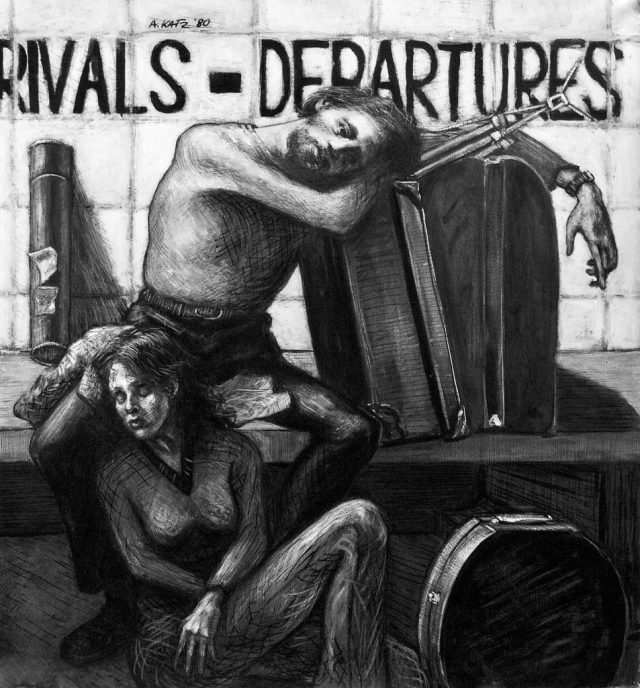In an era of unprecedented global connectivity, the allure of exploring distant lands is more tantalizing than ever. Yet, beneath the excitement of new adventures lies a complex web of ethical considerations that travelers must navigate. As the world becomes increasingly aware of the social, political, and environmental issues that define each nation, the question arises: should travelers avoid countries with controversial policies? This article delves into the intricate balance between wanderlust and ethical responsibility, exploring the various factors that influence travel decisions in today’s interconnected world. From human rights concerns to environmental practices, we aim to provide a nuanced perspective on whether boycotting certain destinations can be an effective tool for change or if it inadvertently deepens cultural divides. Join us as we journey through this moral maze, seeking to understand the role of the traveler in a world where borders are not just lines on a map, but reflections of the values and beliefs we hold dear.
Evaluating Ethical Travel Decisions in a Globalized World
In today’s interconnected world, the decision of whether to visit countries with controversial policies has become a focal point for ethical travelers. Balancing personal beliefs with the desire to explore diverse cultures presents a complex dilemma. On one hand, travel can be a powerful tool for fostering understanding and promoting change through direct engagement and support of local communities. On the other, some argue that visiting such countries may inadvertently endorse or legitimize government actions that contradict one’s values. This decision often requires travelers to weigh several factors:
- Impact on Local Communities: Consider how your visit might affect the local population. Does tourism empower and provide economic benefits, or does it reinforce negative policies?
- Personal Values: Reflect on your own beliefs and how they align with the country’s policies. Are there non-negotiable values that influence your travel choices?
- Alternatives and Advocacy: Explore ways to support positive change. Can your journey include supporting ethical businesses or engaging in advocacy?
- Informed Decisions: Stay informed about the socio-political landscape and be mindful of how your presence is perceived.
Ultimately, the decision is deeply personal and varies from one traveler to another, but being conscious of these aspects can guide more informed and thoughtful choices in a globalized world.
Navigating the Impact of Controversial Policies on Tourism
When deciding whether to travel to countries with controversial policies, it’s crucial to weigh the pros and cons that could impact your experience. On one hand, these destinations often offer unique cultural insights and breathtaking landscapes that might not be available elsewhere. However, travelers should be mindful of potential ethical dilemmas and safety concerns. Consider the following factors:
- Local Sentiment: Research how locals feel about foreign visitors, especially in light of the policies in question. Are tourists generally welcomed, or might your presence be perceived as tacit support for the regime?
- Safety Risks: Evaluate any travel advisories issued by your home country and international organizations. Understand the potential risks and prepare accordingly.
- Personal Values: Reflect on whether visiting such a destination aligns with your personal beliefs and values. Is your trip motivated by genuine curiosity and respect, or could it inadvertently endorse controversial practices?
Ultimately, traveling to countries with contentious policies is a personal decision that requires careful consideration. By remaining informed and respectful, you can navigate this complex terrain thoughtfully and responsibly.

Balancing Personal Values with Cultural Exploration
Embarking on a journey to a new country often involves a delicate dance between embracing the unfamiliar and staying true to one’s personal principles. For some, the allure of experiencing diverse cultures can be at odds with the ethical implications of visiting nations with contentious policies. The decision to explore such destinations can be a deeply personal one, shaped by various factors including individual values, cultural curiosity, and a desire to foster global understanding.
When contemplating travel to countries with controversial policies, it can be helpful to weigh the potential benefits against personal beliefs. Consider the following:
- Engagement vs. Endorsement: Does visiting a country imply support for its policies, or can it be seen as an opportunity for dialogue and cultural exchange?
- Impact on Local Communities: How does tourism affect the people who live there? Is it possible to support local communities in a way that aligns with your values?
- Personal Growth: How might exposure to different viewpoints and lifestyles challenge or reinforce your own beliefs?
Ultimately, the choice to travel to these destinations is a personal one, requiring a thoughtful consideration of how to harmonize one’s values with the enriching experience of cultural exploration. In navigating this complex terrain, travelers can find a path that respects both their own principles and the diverse tapestry of global cultures.

Practical Tips for Conscientious Travelers
When planning your next adventure, it’s essential to balance wanderlust with a sense of global responsibility. Here are some practical tips to help you travel conscientiously:
- Research Thoroughly: Dive deep into the current socio-political landscape of your destination. Understanding the nuances of local policies can guide your decision on whether to visit or explore alternatives.
- Support Local Communities: Choose accommodations, tours, and eateries that benefit local businesses rather than international chains. This approach not only enriches your travel experience but also contributes positively to the local economy.
- Engage Respectfully: While visiting, engage with locals to gain insights into their perspectives. Approach conversations with an open mind and respect differing viewpoints, fostering a genuine cultural exchange.
By following these tips, travelers can enjoy their journeys while remaining mindful of their impact on the world, making travel a more rewarding and enriching experience for everyone involved.
Future Outlook
As the final echoes of our exploration into the intricate dance between travel and geopolitics fade, we find ourselves at a crossroads of choice and conscience. The world, in all its complexity, offers a tapestry woven with both vibrant cultures and challenging realities. While the decision to visit countries with controversial policies remains deeply personal, it is a decision best made with eyes wide open and hearts attuned to the stories that transcend borders.
Travel, at its core, is an act of discovery—a journey that extends beyond landscapes and into the realm of human experience. Whether one chooses to venture into the heart of controversy or to tread more familiar paths, it is essential to travel not just with curiosity, but with compassion and awareness. By doing so, we become not just observers of the world, but active participants in its unfolding narrative.
So, as you chart your next adventure, may you carry with you the understanding that each journey is an opportunity to bridge divides, to foster dialogue, and to embrace the rich tapestry of humanity that binds us all. the question of where to travel is not just about the destination, but about the journey towards a more connected and empathetic world. Safe travels.


































